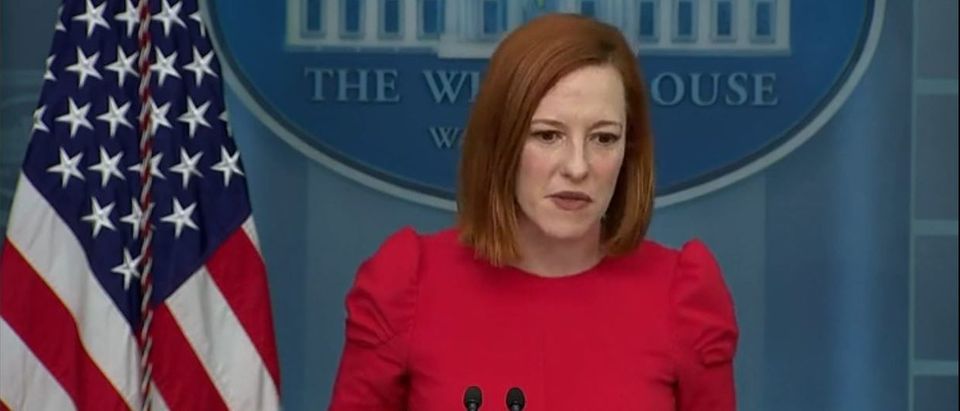Despite the support of key lawmakers in both parties, White House press secretary Jen Psaki refused to endorse a ban on Russian oil imports.
“Our objective, and the president’s objective, has been to maximize impact on President Putin and Russia while minimizing impact to us and our allies and partners,” Psaki told reporters during her Thursday press conference. “We don’t have a strategic interest in reducing the global supply of energy, and that would raise prices at the gas pump for the American people, around the world, because it would reduce the supply available. It’s as simple as less supply raises prices.”
Psaki had claimed on Wednesday that the Biden administration was “very open” to sanctions against Russian energy.
WATCH:
Speaker of the House Nancy Pelosi joined Senate Energy and Natural Resources Committee Chairman Joe Manchin and Republican Kansas Sens. Jerry Moran and Roger Marshall in supporting the ban, describing herself as “all for that” Thursday. The U.S. imported roughly 670,000 barrels of oil a day from Russia in 2021, more than every other country besides Canada. (RELATED: House Republicans Reveal The One Policy They Want Biden To Announce At State Of The Union)
Psaki then claimed that banning Russian imports could help Putin, since it would drive up the price of oil worldwide. Russia is the third-largest oil exporter in the world.
“That’s the last thing we want,” she said. “We carved out payments for energy, trade, and transport from our financial sanctions with that in mind. I would also note that we have been taking steps to degrade Russia’s status as a leading energy supplier over time. That includes shutting down Nord Stream 2, or preventing Nord Stream 2 from operating. That’s why we’re surging LNG [liquefied natural gas] to Europe to help accelerate its diversification from Russian gas, and I think you’ve also seen European leaders talk about the need to reduce their reliance and to diversify, and we are continuing to look at other options to cut U.S. consumption of Russian energy.”
Although Germany ultimately prevented Nord Stream 2 from going online, the Biden administration waived sanctions on the project in May 2021, a move that Republicans such as Texas Sen. Ted Cruz argued made Russian aggression toward Ukraine more likely.
Democratic senators have long opposed exporting liquefied natural gas, arguing that such moves decrease the likelihood of green energy development. President Joe Biden administration issued a moratorium on fracking on public lands shortly after taking office, contributing to the constrained natural gas supply.
Psaki defended the Biden administration’s response to the Russian invasion. The U.S. has sanctioned major Russian banks, as well as top oligarchs and Putin himself.
“We have not held back in taking significant, historic steps that are crippling the Russian economy right now,” she added.


